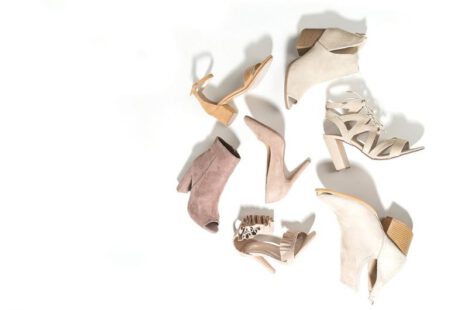High heels have long been a staple in many women’s wardrobes, worn for their ability to elevate style and boost confidence. However, the debate over whether these fashionable shoes cause foot damage has been ongoing. While high heels can undoubtedly make a statement, the impact they have on our feet is a topic worth exploring.
**The Anatomy of Foot Damage**
Our feet are incredibly complex structures, comprising multiple bones, muscles, ligaments, and tendons that work in unison to support our body weight and facilitate movement. When we slip on a pair of high heels, the natural alignment of our feet is disrupted. The raised heel places excessive pressure on the balls of the feet, forcing them to bear a disproportionate amount of weight. This shift in weight distribution can lead to various foot problems, including bunions, hammertoes, plantar fasciitis, and Achilles tendon issues.
**The Downside of High Heels**
One of the most common complaints associated with high heels is the development of bunions. A bunion is a bony bump that forms at the base of the big toe, causing pain and discomfort. The narrow toe box of many high-heeled shoes can exacerbate this condition by squeezing the toes together and putting pressure on the joint. Over time, this pressure can cause the big toe to deviate towards the smaller toes, resulting in a bunion.
Hammertoes are another foot deformity that can result from wearing high heels. This condition occurs when the toe joints become bent, causing the toes to curl downward instead of lying flat. The cramped quarters of high-heeled shoes can force the toes into an unnatural position, leading to the development of hammertoes. In severe cases, surgery may be required to correct this deformity.
Plantar fasciitis is a painful condition that occurs when the band of tissue that runs along the bottom of the foot becomes inflamed. The elevated heel of high-heeled shoes can cause the Achilles tendon to tighten, putting additional strain on the plantar fascia. This increased tension can lead to micro-tears in the tissue and result in heel pain that is particularly acute in the morning or after prolonged periods of standing.
**Achilles Tendon Woes**
The Achilles tendon is the largest tendon in the body and connects the calf muscles to the heel bone. Wearing high heels places the foot in a pointed position, shortening the Achilles tendon and causing it to become tight and stiff. Over time, this can lead to tendonitis, a condition characterized by pain and inflammation in the tendon. In severe cases, the Achilles tendon may even rupture, requiring surgical intervention to repair.
**Preventive Measures and Alternatives**
While high heels can be stylish and flattering, it is essential to wear them in moderation and take steps to protect your feet. Opt for shoes with a lower heel height and a wider toe box to reduce the risk of developing foot problems. Incorporating stretching exercises into your daily routine can help maintain the flexibility of your Achilles tendon and prevent tightness.
If you find yourself experiencing foot pain or discomfort, consider consulting a podiatrist for a proper evaluation. They can provide personalized recommendations to address your specific foot issues and prevent further damage. Additionally, exploring alternative footwear options such as flats, sneakers, or supportive sandals can give your feet a much-needed break from the strains of high heels.
**In Summary**
While high heels may add a touch of glamour to your outfit, they can also take a toll on your feet. The unnatural alignment and elevated heel height of these shoes can lead to a variety of foot problems, from bunions and hammertoes to plantar fasciitis and Achilles tendon issues. To minimize the risk of foot damage, consider wearing high heels in moderation and incorporating preventive measures into your daily routine. Remember, your feet are the foundation of your body, so treat them with care and choose footwear that prioritizes both style and comfort.





